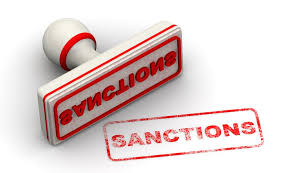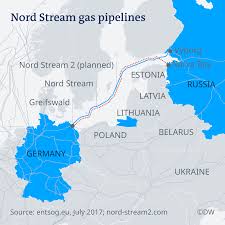
Oklahoma’s U.S. Sens. Jim Inhofe and James Lankford were among those who easily passed the compromise defense policy that includes measures to sanction those companies that help in the construction of the Russian-backed Nord Stream 2 and Turk Stream pipelines.
The vote on the motion was approved 82-16 and the vote on the conference report was 86-8. The bill now heads to President Trump’s desk where he is expected to sign it.
The legislation gives the President the power to slap sanctions on firms that help construct the massive underwater pipeline to move Russian natural gas to Germany.
The Senate easily passed the U.S. defense policy bill with language backed by Senators Ted Cruz, a Republican, and Jeanne Shaheen, a Democrat, imposing sanctions on companies laying pipeline for the $11 billion Nord Stream 2 project.
Senator Jim Risch, a Republican and the chairman of the Senate Foreign Relations Committee, said the sanctions will prevent the project’s completion and are an “important tool to counter Russia’s malign influence and to protect the integrity of Europe’s energy sector.”
Nord Stream 2, led by state-owned Gazprom, would allow Russia to bypass Poland and Ukraine to deliver gas under the Baltic Sea to Germany. U.S. lawmakers say Ukraine could lose billions of dollars in transit fees if it is built.

The Trump administration, like the Obama administration before it, has opposed the pipeline, saying it would increase Russia’s political grip on Europe. Washington has touted exports of U.S. liquefied natural gas, or LNG, to provide Europe alternatives to gas pipelined from Russia.
German Foreign Minister Heiko Mass has rejected U.S. sanctions as “foreign interference,” but there is concern in Europe’s biggest economy that the measures could slow the project’s completion.
A document from Germany’s Economics Ministry, cited by the Bild newspaper, showed Berlin believes U.S. sanctions could hit construction of the pipeline off Denmark.
The bill targets companies based in Western Europe laying the pipeline. Dutch-Swiss company Allseas, which is laying pipeline off the Danish island of Bornholm, also could be hit.
The sanctions would require the U.S. secretary of state to issue a report within 60 days on vessels that are engaging in pipe-laying for the Nord Stream 2 and TurkStream pipelines.
If a company is listed in the reports, it would then be blacklisted by Washington unless the president determined the company was winding down the operations. The president could also waive the sanctions based on national security considerations.
Russia’s Deputy Prime Minister Dmitry Kozak said last month Nord Stream 2 was expected to begin operations in mid-2020, but Gazprom said the timing will depend on weather.
The bill would also phase out the use of PFAS in military firefighting foam in five years such as used at Tinker Air Force base, Vance Air Base and Altus Air Force base in Oklahoma. It also would create a climate security advisory panel with the Office of the Director of National Intelligence.





